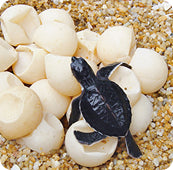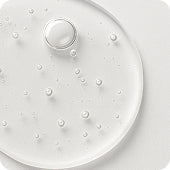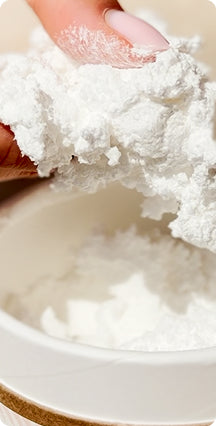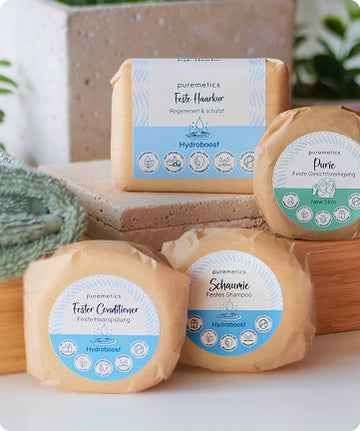May Challenge: 7 tips against food waste
May Challenge: 7 tips against food waste

In Germany alone, around 81kg of food is thrown away per capita every year. Vegetables make up the majority (26%), followed by fruit (18%) and baked goods (15%). So it is about 220g per person that ends up in the garbage every day. That's the equivalent of a large apple - every day. This means that, in addition to the food, around €245 (calculated on the basis of the apples) is thrown away every year.
With almost a third of the food produced worldwide ending up in the garbage, important resources are wasted. Every year, more than 38 million tons of greenhouse gases are produced and around 216 million cubic meters of water are consumed. Added to this are the use of arable land and the energy consumption for transport.
We have summarized 7 tips to help us waste less food:
1. Planning is the be-all and end-all
Before we go shopping, we should get an overview of what groceries we already have at home. In the next step, we use this to create a meal plan and note on a shopping list which foods we are still missing. This helps us to only buy as much as we really need. Tip: If possible, don't go shopping when you're hungry. We all know it... More things end up in the shopping cart than necessary. Of course, it would be ideal if we only shop seasonally and regionally. The food lasts longer and long transport routes are avoided. In addition, seasonal foods have a higher nutrient content. And even after the purchase, the planning continues. If there are leftovers from dinner, we can simply take them to work. And you can also conjure up delicious new dishes from leftovers. How about an “eat me first” box? So you always have an eye on which food needs to be used up next.
2. Share
Some packages are so big that it is often difficult to use them up alone. But we can simply coordinate with our friends or neighbors and split up large quantities. Another very nice option is to donate permitted small amounts to the Tafel or to distribute them to the needy yourself. The same applies if we don't like something. Just ask other people if they can use the food instead of throwing it away.

3. It's not a beauty pageant
We wish for courage to be ugly! Is it so important that the groceries you buy are beauty queens of the store? After all, they all taste equally good – and are just as healthy. Unfortunately, most "ugly" fruit and vegetables are thrown away before they reach the supermarket, so sometimes there is no opportunity to buy them at all. But even food with blemishes such as scratches and small quirks are often left unattended. We can simply cut away unsightly areas and enjoy the delicious food. Also, shriveled carrots in the fridge is something we all know. They're not necessarily bad yet, they just lack moisture. If we put them in a full glass of water overnight, they'll be like new the next day.
4. Utilize (almost) everything
Vegetable peelings probably end up in the trash for almost all of us. But these can also be used. If you simmer vegetable peelings with your choice of spices and water over low heat for a few hours, you will have your own vegetable broth. The leftover vegetables only have to be sieved out. You can also freeze your vegetable broth in individual portions and defrost whenever you need something. Totally practical! Even fruit that is already shriveled can still be used with a clear conscience. In a smoothie, you don't notice it at all, except that the delicious drink might even be a little sweeter than usual. We can cook a delicious applesauce from old apples.
5. Preserve
Sometimes we don't manage to use things up in time. But if we notice this early enough, we can counteract it. The easiest way is probably to freeze food whenever possible. Fruit and vegetables can easily be chopped up and frozen in portions. So we always have something fresh at home. Another option is to cook food. For this purpose, the food is filled into a clean glass, which is tightly sealed and then heated. This creates an overpressure in the glass. As it cools, a vacuum forms. This seals the jar airtight and protects the contents. Pickling is also a good way of preserving food.

6. Store properly
Proper storage is incredibly important for food to last. Potatoes, onions and garlic like it dark and cooler. Tomatoes, on the other hand, are susceptible to cold. Some other varieties don't feel very comfortable in the fridge either. This applies, for example, to bananas, cucumbers or citrus fruits. But there are also a few things to consider when it comes to storing food in the refrigerator. The bottom compartments in the fridge are the coldest, while the compartments in the door are the warmest.
7. Regrow vegetables
Did you know that you can quickly grow new vegetables from vegetable waste? For example, if you cut off the stalk of spring onions generously and put them in water, which should be changed every few days, you will see the first green after just a few days. So you have fresh spring onions again. Incidentally, this also works in a similar way with celery. You just have to put it in the ground as soon as new leaves sprout from the stalk.
This is our May challenge! Would like more? Then you will find an overview of our sustainability challenges here.
If you would like to be informed directly about the latest blog posts, please follow us Instagram ! :-)











